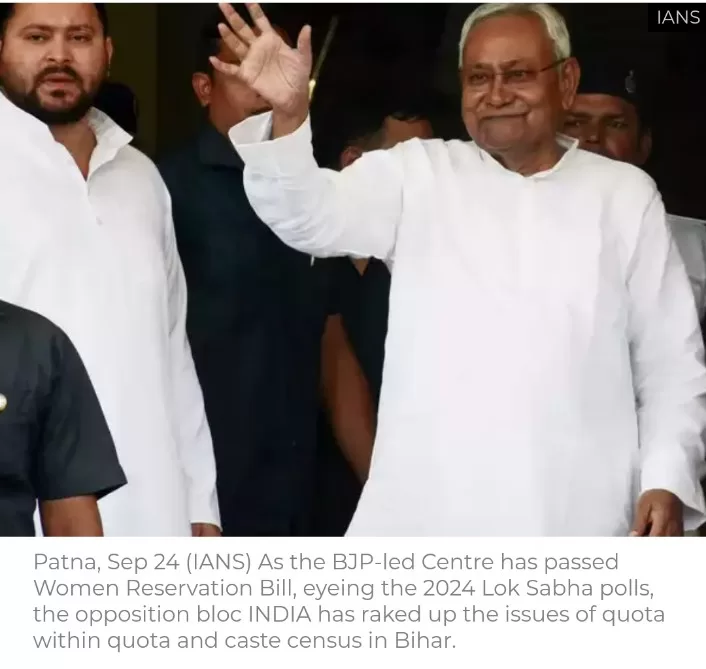In a significant move, the Bihar government, led by Chief Minister Nitish Kumar, has issued gazette notifications to increase the reservation quota for deprived castes from 50% to 65% in state government jobs and educational institutions. This decision follows the passage of two bills, namely the Bihar Reservation of Vacancies in Posts and Services Amendment Bill and the Bihar Reservation (Admission In Educational Institutions) Amendment Bill, during the assembly session.
Key Points:
1. Quota Expansion:The bills propose an increase in the reservation for Scheduled Castes (SC) from 16% to 20%, Scheduled Tribes (STs) from 1% to 2%, extremely backward castes (EBCs) from 18% to 25%, and other backward classes (OBCs) from 15% to 18%. This elevation aims to raise the overall caste-based reservations from 50% to 65%.
2. Survey-Based Decision:The government’s decision is based on the findings of a comprehensive caste-based survey conducted statewide. Chief Minister Nitish Kumar emphasized that the increased quotas should be implemented effectively for the benefit of those in need.
3. Financial Assistance: As part of the new system, families earning less than Rs 6,000 per month will receive one-time financial assistance of Rs 2 lakh. Homeless families among them will additionally be provided Rs 1 lakh each for purchasing land for house construction.
4. Long-term Impact: Finance Minister Vijay Kumar Choudhary highlighted the necessity for a nationwide caste-based headcount, urging the central government to initiate a decadal Census along with the enumeration exercise.
5. Supreme Court Cap:The Supreme Court’s earlier cap of 50% on reservations in jobs and educational institutions will now be surpassed, bringing the total reservations in the state to 75%, considering the existing 10% quota for economically weaker sections (EWS).
6. Governor’s Assent: The gazette notifications were issued after Governor Rajendra Vishwanath Arlekar gave his assent to the bills, facilitating the implementation of the increased quota.
This decision marks a significant step in addressing social inequalities and ensuring more inclusive opportunities for marginalized communities in Bihar.







